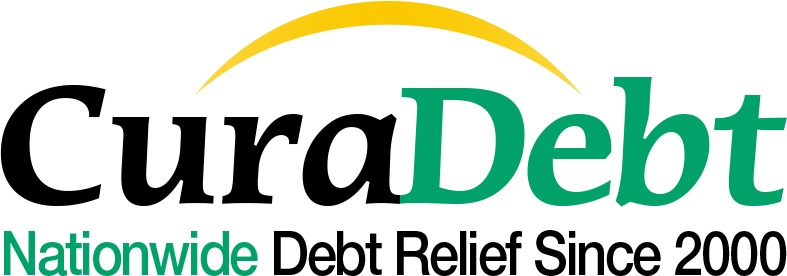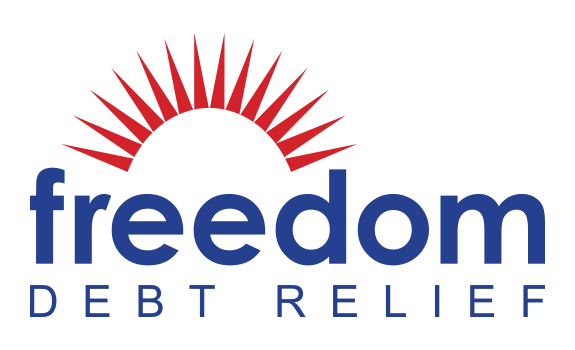Reviewing Top Debt Consolidation Plans for 2024
FinSpot.guide may earn a commission when a user completes an action using our links, which will however not affect the review but might affect the rankings. The latter is determined on the basis of product market fit and compensation received.
The information contained in FinSpot.guide should not be conceived as legal, financial or investment advice nor as an endorsement of any of the products or services referenced in FinSpot.guide. As disclosed in the Terms and Conditions all information on FinSpot.guide is subject to change. FinSpot.guide does not contain an exhaustive list of all lending or insurance partners in each category.
- Free initial consultation
- Fees only paid as debts are settled, typically less than 21% of total debt
- Get A Free, No-Obligation Debt Relief Consultation
- Reduce debt to a fraction of what you owe
- Consolidate multiple payments into one
- Be debt free in 12-48 months!
- Get A Free Savings Estimate Today
- See How Quickly You Can Be Debt Free
- No Fees Until Your Accounts Are Settled
Our Methodology: How we Reviewed the Best Plans in the US
Research. Research. More research. It’s really that simple. Our dedicated team of online experts scour the internet every single day to find the best options available for our audience. We want to help save you money, and we want the process of saving to be easy for you to complete. The reviews we provide are based on the following criteria; reliable service, ease of application, and trusted source. FinSpot wants you to be able to select the best option for you, and then move on with your life to focus on the things that matter, like family, friends, and a healthy life! Take a look at the following list and always do your own research as well. We’re confident you’ll be satisfied with our review.
Debt & Loan Consolidation FAQs
What types of debts can be consolidated?
- Common types of debts that can be consolidated include card balances, personal loans, medical bills, and other unsecured debts.
What is the difference between secured and unsecured debt consolidation?
- Secured debt consolidation involves using collateral (e.g., home equity), while unsecured consolidation does not require collateral.
What are the potential benefits of debt consolidation?
- Benefits may include lower interest rates, simplified payments, and the potential to pay off debt faster.
Are there risks associated with debt consolidation?
- Risks include potentially paying more interest over the long term and the risk of accumulating more debt if spending habits don't change.
How do I qualify for debt consolidation?
- Qualification criteria vary by provider but often include a stable income, a good score, and a manageable level of debt.
Can I consolidate federal student loans?
- Federal student loans can be consolidated through a Direct Consolidation Loan offered by the U.S. Department of Education.
Will debt consolidation affect my credit score?
- Initially, it may cause a small dip in your score, but over time, if you make timely payments, it can improve it.
How do debt consolidation companies determine interest rates?
- Interest rates are typically based on your creditworthiness and the terms of the consolidation loan.
Are there fees associated with debt consolidation?
- Some companies charge fees for their services. It's important to understand and factor in any fees before committing.
Can I include all my debts in the consolidation?
- Most unsecured debts can be included, but not all debts may be eligible. Secured debts may require specific considerations.
How long does the debt consolidation process take?
- The timeline varies, but it typically takes a few weeks to complete the consolidation process.
What happens if I miss a payment during consolidation?
- Missing payments can have consequences, including late fees and potential damage to your credit score.
Can I consolidate private student loans?
- Yes, private student loans can be consolidated through private lenders.
Can I prepay the consolidated loan without penalties?
- Most reputable providers allow prepayment without penalties, but it's essential to confirm this before signing any agreements.
Are there tax implications with debt consolidation?
- In most cases, there are no direct tax implications, but it's advisable to consult with a tax professional to be sure.
What should I look for in a reputable debt consolidation provider?
- Look for a provider with a good reputation, transparent terms, reasonable fees, and clear communication. Check reviews and consider recommendations.
Understanding Debt Consolidation
Before diving into the selection process, it's important to have a clear understanding of what debt consolidation actually is. Debt consolidation involves combining multiple debts, such as card balances, personal loans, and medical bills, into a single, more manageable loan or payment plan. The primary goal is to simplify monthly payments, potentially secure a lower interest rate, and accelerate the debt repayment process!
Sounds pretty straightforward, right? When you have the right partner, it can be!
Factors to Consider When Choosing a Company
- Accreditation and Credentials: Start your search by ensuring that the debt consolidation company is accredited and holds the necessary credentials. Look for affiliations with reputable organizations such as the National Foundation for Credit Counseling (NFCC) or the Financial Counseling Association of America (FCAA). Accreditation indicates that the company adheres to industry standards and ethical practices.
- Transparency and Disclosures: Transparent communication is vital when dealing with financial matters. A trustworthy debt consolidation company should provide clear and comprehensive information about their services, fees, and terms. Be wary of companies that are not transparent about their processes or are hesitant to disclose key details.
- Reputation and Reviews: Research the company's reputation by reading reviews from clients just like you. Online platforms, such as the Better Business Bureau (BBB) and consumer review websites, can provide valuable insights into the experiences of others. Pay attention to both positive and negative reviews to get a balanced perspective.
- Experience in Debt Consolidation: Consider the company's experience in the field. An established track record suggests the company has successfully assisted others in managing their debts. Inquire about the number of clients they have helped and how long they have been in operation.
- Range of Services: Assess the range of services offered. Some companies specialize in debt consolidation loans, while others focus on debt management plans or settlement programs. Choose a company that provides services aligned with your specific financial needs and goals.
- Interest Rates and Fees: Scrutinize the interest rates and fees associated with the debt consolidation program. This is a VERY important stage. The objective is to secure a lower interest rate than what you're currently paying on your individual debts. Additionally, be aware of any upfront fees or hidden costs that may impact the overall affordability of the consolidation plan.
- Customization and Flexibility: A one-size-fits-all approach may not be suitable for everyone. Look for a company that offers customization and flexibility in tailoring solutions to your specific situation. This may involve adjusting payment schedules, interest rates, or other terms to better meet your needs.
- Financial Education and Counseling: A reputable debt consolidation company should prioritize financial education and counseling. This includes providing resources and guidance to help you make informed financial decisions and avoid falling into debt in the future. Educational components can empower you to take control of your financial well-being.
- Legal Compliance: Ensure that the debt consolidation company operates within the bounds of the law. Verify their compliance with federal and state regulations governing debt consolidation and financial services. This step is crucial for protecting your rights and ensuring that the company operates ethically.
Red Flags to Watch Out For: Be cautious of red flags that may indicate potential issues with a debt consolidation company. These include upfront fees before providing any services, promises of quick and unrealistic results, and pressure tactics to make quick decisions. Legitimate companies will provide information and allow you the time needed to make an informed choice.
By prioritizing accreditation, transparency, reputation, and customization, you can increase the likelihood of selecting a reputable company that aligns with your financial goals. Remember that debt consolidation is just one option, and it's essential to explore alternatives and consult with financial professionals to determine the most suitable path for your unique situation. Taking the time to research and make an informed decision can pave the way for a more secure and manageable financial future.














